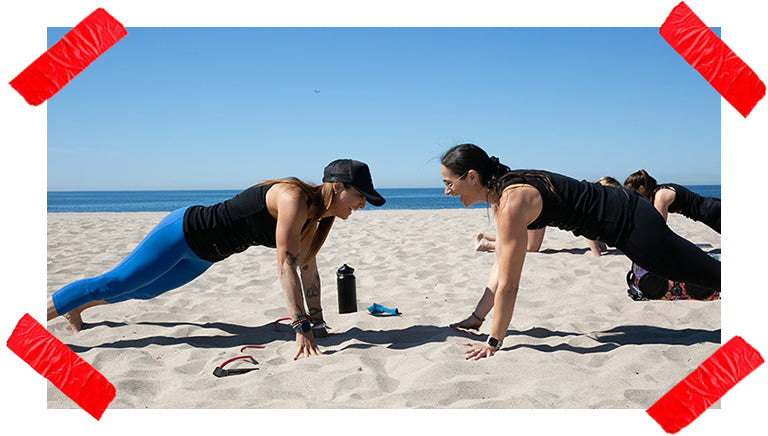5 Exercises to Help Battle Addiction

Exercise has plenty of benefits for people in recovery. Scientific research proves that exercise isn’t just good for your physical health. It also offers the following positive effects for people who are recovering from addiction.
- It helps curb drug and alcohol cravings.
- It reduces some withdrawal symptoms.
- It adds structure to the day.
- It reduces stress.
- It helps people form positive social connections.
- It reduces stress, depression, and anxiety.
- It improves mental state.
- It promotes better sleep.
- It boosts self-esteem.
Instead of being focused on your next high, regular exercise helps you focus on more healthy things, like your next run or workout class. The best part about all this is that you don’t have to be exercise-obsessed to experience the many benefits of physical activity. All it takes is a small daily time commitment to reap the benefits.
5 Great Exercises to Curb Addiction Cravings
If you experience strong cravings after detox and rehab, staying sober can be challenging. This is especially true if you lack coping skills. Enrolling in a rehab program and/or a sober living program will help you learn how to deal with cravings and give you a safe, supportive environment to practice. However, exercising regularly can also bolster your efforts.
Most studies that have been used to determine the effects of exercise in recovery have involved aerobic exercise. However, resistance training also provides similar effects and engaging in both forms of exercise is even better!
With that in mind, here are five great exercises to curb addiction cravings.
- Swimming: Swimming is a low-impact form of exercise that is great for people with all capabilities, even those with injuries. It’s a full-body workout that alleviates stress, builds muscle strength and endurance, and improves heart health. Scientific research also backs the idea that swimming can help with cravings. For example, one study published in the European Journal of Pharmacology found that regular swimming reduced voluntary morphine consumption among opioid-dependent rats. Withdrawal symptoms and physiological signs of anxiety were also decreased in rats that swam regularly compared to sedentary ones.
- Walking or running: Aerobic exercise like walking or running increases dopamine levels, which can improve your mood and make you feel great both during and after your workout. There’s no need to run a full marathon to experience these benefits either. Even a short 15-minute jog or a brisk walk around your neighborhood can provide noticeable benefits that can distract you from your cravings and keep your mind off getting high or drunk.
- Yoga or tai chi: Yoga or tai chi are both highly beneficial for people in recovery because they are less intense forms of physical exercise and they encourage a focus on mental health. Yoga practice often requires you to meditate, which reduces stress and anxiety to help prevent relapse in the long-run. Due to its many physical and psychological benefits, yoga is often built into structured addiction treatment programs as well as recovery services like sober living programs and peer support programs.
- Group classes or team sports: Any form of exercise that involves social connection and teamwork is an excellent source of support, especially when you’re struggling with cravings and urges to use. Sober social connections are very valuable in recovery and regular sports gatherings can provide a welcome distraction from cravings, a sense of belonging, and many opportunities to confide in others about your cravings and receive support.
- Strength training: If you have struggled with insomnia since getting sober, those long sleepless nights can leave you more susceptible to cravings. However, strength training exercises like lifting weights can improve and regulate the body’s sleep cycle over time, giving you a better chance at fighting them off.4 Although lifting weights may sound intimidating, you don’t have to become a bodybuilder to reap the benefits. Simple weight lifting exercises and a set of dumbbells are all you need.
Additional Recovery Support
Although exercise can bolster your sobriety maintenance efforts, exercise alone won’t keep you sober. If you’re struggling with consistent cravings for drugs or alcohol, maintaining your sobriety will require long-term, comprehensive treatment, professional assistance, and peer support. Additional recovery support is available in many different forms, including:
VIA: Eudaimonia Homes


Leave a comment